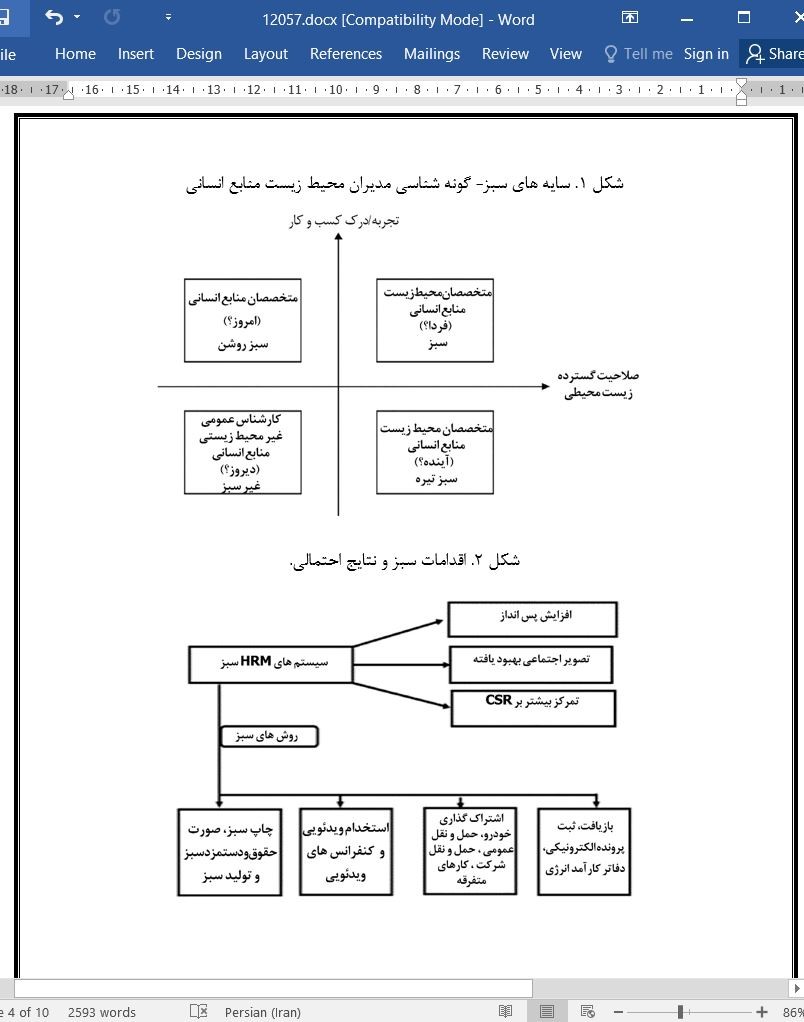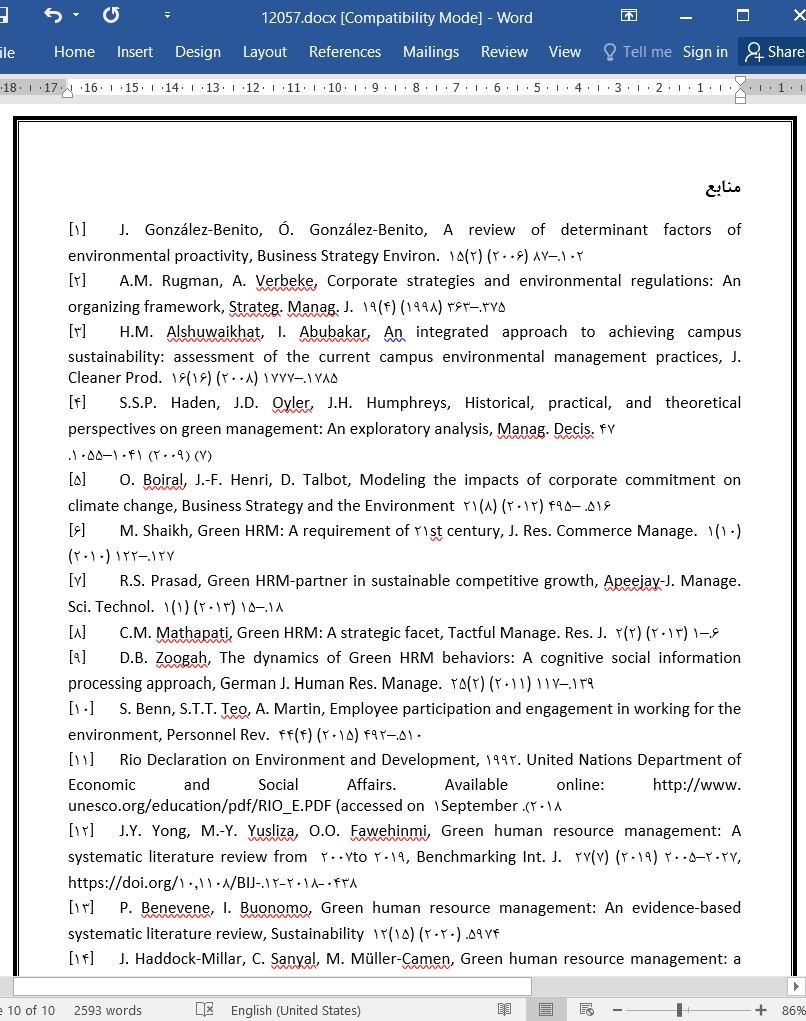
مدیریت منابع انسانی سبز برای توسعه پایدار
1. مقدمه
سناریوی جهان کنونی در زمینه مصرف و کاهش متعاقب منابع طبیعی، منجر به ظهور یک کلمه نوظهور به نام "مدیریت منابع انسانی سبز" شده است. این مفهوم در درجه اول بر توسعه یک فرهنگ مردم محور برای پرورش امکانات حفظ محیط زیست تمرکز می کند که به تدریج منجر به توسعه پایدار گسترده برای جهان می شود. در راستای توسعه عظیم حاصل از انقلاب صنعتی که در اواسط دهه ۱۷۰۰ آغاز شد، جهان شاهد شیوع تدریجی ظهور صنایع، رشد اقتصادی، استانداردهای زندگی بالاتر، در دسترس بودن محصولات و امکانات کلاس جهانی و غیره بوده است. ما برای همه چیز به منابع محیطی تکیه می کنیم. از غذایی که می خوریم گرفته تا برقی که مصرف می کنیم و لباس هایی که می پوشیم، همه چیز از محیط زیست گرفته شده است. اما جایی در میان انبوه این دستاوردها، جنبه زیست محیطی بدیهی فرض شده و آسیب زیادی به محیط زیست وارد شده است که عواقب آن در سناریوی غالب بسیار مشهود است. آلودگی هوا، آلودگی آب، آلودگی خاک و تخریب زیستگاه بارزترین پیامدهای توسعه صنعتی هستند. توجه به محیط زیست سبب شده است که در طول سال ها، قوانین و مقررات متعددی با توجه به مسائل زیست محیطی به وجود آید تا بتوان تاثیر فعالیت های انسانی را بر محیط زیست تنظیم نمود. خلاصه ای از برخی از طرح های مرتبط را می توان به شرح زیر بیان کرد: جدول ۱.
5. نتیجه گیری
مقاله مفهومی حاضر تمرکز زیادی بر ترکیب شیوه ها و روش های منابع انسانی سبز به عنوان یکی از اجزای دستیابی به توسعه سازمانی کلی دارد. نقش منابع انسانی در ایجاد رویکرد سبز در سازمان ها قابل ستایش است، که اجازه اجرای طرح های پایدار را از طریق تعهد و مشارکت کارکنان می دهد. سازمان هایی با منشا هندی باید تمایل به کسب امتیاز سبز بالاتر داشته باشند که از سوی دیگر باید به عنوان مولفه اصلی تعریف برندینگ کلی کارفرما در نظر گرفته شود.
1. Introduction
The current world scenario in terms of consumption and subsequent depletion of natural resources has led to the emergence of a buzz word called ‘‘GREEN HRM”. The concept primarily focuses on developing a people-oriented culture to foster possibilities of preserving the environment and gradually leading to sustainable development for the world at large. In line with the massive development resultant of the industrial revolution, which started somewhere in the middle of 1700 s, the world has witnessed gradual outbreaks in terms of emergence of industries, economic growth, higher standards of living, availability of world-class products and amenities, and what not. We rely on the environmental resources for everything; from the food we eat to the electricity we use and the clothes we wear, everything is derived from the environment. But somewhere in the crowd of all these achievements, the environmental aspect was taken for granted and a lot of harm has already been done to the environment, the consequences of which are very much evident in the prevailing scenario. Air pollution, water pollution, soil contamination and habitat destruction are the most evident consequences of industrial development. Mounting concerns regarding the environment have led to the emergence of several laws and legislations with respect to environmental issues, over the years, to regulate the impact of human activities on the environment. A summary of some of the related initiatives can be stated as follows: Table 1
5. Conclusion
The present conceptual paper places immense focus on incorporating well thought green HR practices and procedures as one of the ingredients of attaining overall organizational development. The role of HR in bringing about the green-led approach in the organizations is commendable, which allows for the implementation of sustainable initiatives through employee commitment and contribution. The organizations of Indian origin should have an inclination towards securing higher Green ratings which on the other hand should be incorporated as a major component of defining the overall employer branding.
1. مقدمه
1.1 دلیل سبز بودن (یا حامی محیط زیست بودن)
2. مدیریت منابع انسانی سبز
3. مروری بر ادبیات
4. مدیریت منابع انسانی سبز و پایداری:
5. نتیجه گیری
منابع
1. Introduction
1.1. Rationale of going Green
2. Green HRM
3. Literature Review
4. Green HRM and Sustainability:
5. Conclusion
References
Further Reading
- اصل مقاله انگلیسی با فرمت ورد (word) با قابلیت ویرایش
- ترجمه فارسی مقاله با فرمت ورد (word) با قابلیت ویرایش، بدون آرم سایت ای ترجمه
- ترجمه فارسی مقاله با فرمت pdf، بدون آرم سایت ای ترجمه



